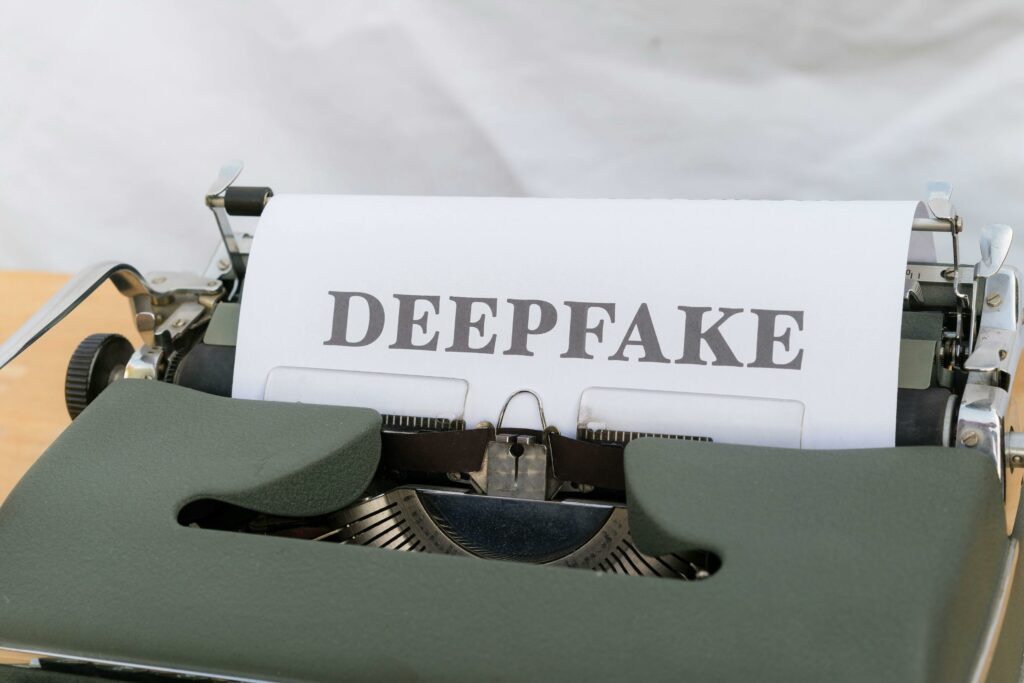In the rapidly evolving landscape of fintech, the rise of deepfake technology poses a significant challenge to traditional KYC processes. Deepfakes, highly realistic, AI-generated impersonations, can deceive even the most vigilant security measures, potentially enabling fraudulent activities.
Fintech companies are turning to advanced technologies, like machine learning and biometric verification, to combat this threat and enhance their KYC protocols.
These technological advancements not only bolster the security of financial transactions but also accentuate the role of technology in safeguarding the financial system.
Understanding Deepfakes
Deepfakes are synthetic media in which a person’s likeness is replaced with someone else’s using artificial intelligence (AI). These sophisticated manipulations can create highly realistic videos or audio recordings that are difficult to distinguish from genuine content.
If we look at data on the rise of deepfake technology, it has led to huge financial losses in most industries.
According to PR Newswire, there has been a 10x increase in the deepfake cases detected globally from 2022 to 23. These deepfake cases were reported across all industries. Across all types of deepfake cases, ID card fraud remains the most frequent, accounting for around 75% of such cases.
Within the realm of KYC, deepfakes present a significant hazard by potentially enabling impersonation during identity verification procedures. Hence, Fintech enterprises should adopt robust deepfake detection systems to counteract the dangers linked to fraudulent behavior.
Technology Solutions for Deepfake Detection
Technology Solutions for deepfake detection are becoming increasingly essential in the fight against fraudulent activities in fintech. Fintech companies leverage numerous innovative solutions, including machine learning algorithms and biometric verification tools, to detect and prevent deepfake attacks. These technological advancements are crucial for maintaining the integrity of KYC processes in the digital age.
AI-Driven Facial Recognition and Biometric Analysis
AI-driven facial recognition and biometric analysis are at the forefront of deepfake detection efforts in fintech. These technologies analyze facial features and other biometric data to verify the identity of individuals.
According to Future Market Insights, the accuracy rate of facial recognition is high, i.e., 99%. That is why the global facial recognition market was valued at US$ 5.7 billion in 2023. It is expected to grow at 16.1% and reach US$ 25.4 billion by 2033.
Blockchain-Based Identity Verification Methods
Blockchain-based identity verification methods offer a decentralized and secure approach to combating deepfake fraud in fintech. By storing identity information on a tamper-proof blockchain, fintech companies can ensure the integrity and authenticity of user data. This approach enhances KYC processes by providing a transparent and immutable identity verification record.
Machine Learning Algorithms for Anomaly Detection
Machine learning algorithms are crucial in detecting anomalies that may indicate deepfake fraud in fintech. These algorithms analyze patterns in data to identify suspicious behavior or discrepancies in identity verification processes. By continuously learning from new data, machine learning algorithms can adapt to emerging threats, enhancing the effectiveness of KYC processes in fintech.
Audio Analysis Tools for Voice Verification
Audio analysis tools are essential for voice verification in deepfake detection efforts. According to Statista, many voice recognition technology users in the US have been actively using the technology for 1-2 years. Interestingly, nearly 50% of the respondents who have used voice recognition for three years or more showed a substantial interest in this technology.
This technology analyzes voice patterns and characteristics to verify the authenticity of a speaker’s identity. By detecting anomalies or inconsistencies in voice recordings, companies can enhance their KYC processes and prevent fraudulent activities that rely on fake audio recordings.
Implementation Challenges and Considerations
Implementation challenges and considerations in deploying deepfake detection technologies for fintech KYC processes include ensuring scalability, accuracy, and compliance with data privacy regulations.
According to AU10TIX, companies must consider these technologies’ cost-effectiveness and integration capabilities into their existing systems. They must address the ethical implications of using AI for identity verification to maintain customer trust and transparency.
Moreover, fintech companies must balance security and user experience to maintain customer trust while mitigating fraud risks.
There is an increased demand for such security implementations in almost all industries. Companies and firms offer cost-effective AI technology to be integrated into the KYC process to identify and prevent fraud. With their cutting-edge technology and rationalized workflow, the achieved results are faster verification, ensured compliance, and improved customer safety.
For further insights into the latest security measures and their successful implementation, visit https://www.au10tix.com/.
Emerging Trends in Deepfake Detection
Emerging trends in deepfake detection for fintech KYC purposes include the integration of multi-modal biometric verification, such as combining facial recognition with voice authentication. These techniques bolster the precision of identity verification.
Furthermore, the adoption of blockchain technology for secure and transparent identity management is increasingly gaining momentum. Advancements in AI and machine learning algorithms are enabling more sophisticated deepfake detection methods, ensuring the continuous evolution of KYC processes.
Future Directions and Innovations
Future directions in deepfake detection for fintech KYC are likely to focus on the development of more robust and adaptive AI algorithms. These AI algorithms will be capable of detecting increasingly sophisticated deepfake techniques.
Innovations may include the integration of blockchain for decentralized and secure identity verification and the use of advanced biometric technologies for verification processes.
Additionally, the collaboration between fintech companies and research institutions is expected to drive further advancements in deepfake detection.
In conclusion, the rise of deepfake technology is challenging for fintech KYC processes, threatening the security and integrity of financial transactions. Addressing the challenges posed by deepfake technology through the implementation of advanced detection methods is crucial. It is a must for safeguarding the integrity of fintech KYC processes and maintaining trust in digital transactions.
Advancements in technology, like AI-driven facial recognition, blockchain-based identity verification, and machine learning algorithms, offer promising solutions to combat this threat.
By leveraging these technologies and staying abreast of emerging trends and innovations, fintech companies can enhance their KYC processes. They can enhance security and guard against deepfake fraud in the constantly changing digital environment.






